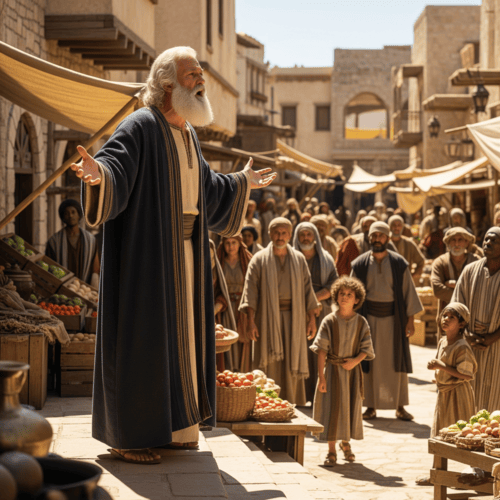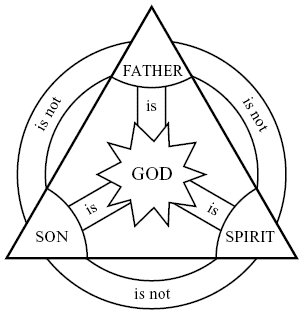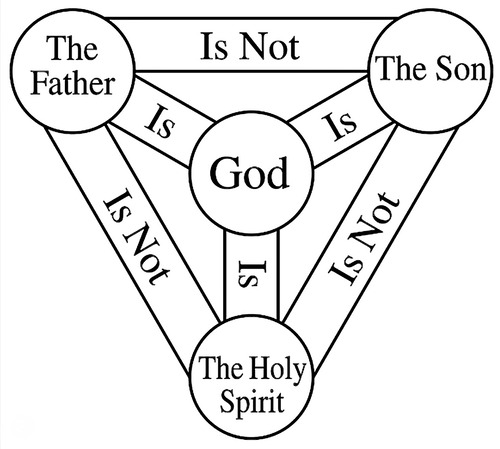Does God Know the Future? Is He Ever Caught by Surprise?
Is God ever surprised by anything that happens? When nations rise and fall, when disasters strike, when we make our next decision—does any of it catch the Almighty off guard?
This isn’t just a philosophical puzzle. How we answer this question shapes everything: our prayers, our peace in suffering, our confidence in God’s promises, and our understanding of salvation itself. The stakes couldn’t be higher.
Scripture gives us a clear, resounding answer: Yes, God has perfect, exhaustive knowledge of all future events. Let’s explore what the Bible teaches and why it matters for us today.
DOES GOD KNOW THE FUTURE? WHAT SCRIPTURE REVEALS
The Bible doesn’t leave us guessing about God’s foreknowledge. It makes bold, sweeping declarations that would be blasphemous if they weren’t true.
Consider Isaiah 46:9-10, where God Himself speaks: “I am God, and there is no other; I am God, and there is none like me, declaring the end from the beginning and from ancient times things not yet done, saying, ‘My counsel shall stand, and I will accomplish all my purpose.'”
Notice what God claims here. He doesn’t just know some future events—he declares “the end from the beginning.” Every moment between now and eternity’s end is as clear to him as yesterday’s breakfast is to you.
The Apostle John puts it even more simply: God “knows all things” (1 John 3:20). Not most things. Not the big things. All things.
David marvels at this reality in Psalm 139:16: “In your book were written, every one of them, the days that were formed for me, when as yet there was none of them.” Before David drew his first breath, every day of his life was already written in God’s book.
This isn’t just about God having a really good memory or being an excellent guesser. As 2 Peter 3:8 reminds us, God exists outside our time constraints: “With the Lord one day is as a thousand years, and a thousand years as one day.” He sees all of history—past, present, and future—from his eternal vantage point.
PROPHECY: GOD’S FOREKNOWLEDGE IN ACTION
Scripture doesn’t just tell us God knows the future—it shows us. The Bible is filled with specific prophecies that were fulfilled with stunning accuracy, often centuries after they were made.
Take the prophecies about Jesus Christ. Isaiah 53, written around 700 BC, describes the Messiah’s suffering in vivid detail: pierced, wounded, bearing our iniquities, making intercession for transgressors. Psalm 22, written a thousand years before crucifixion was even invented, describes the method of Christ’s death with eerie precision: hands and feet pierced, bones out of joint, lots cast for clothing.
Micah 5:2 names the specific town where the Messiah would be born—Bethlehem—seven centuries before it happened. Daniel 9:24-27 provides a timeline for the Messiah’s coming that biblical scholars have calculated to remarkable accuracy.
Consider some historical prophecies. Daniel chapters 2 and 7 outline the succession of world empires—Babylon, Persia, Greece, and Rome—with details that secular historians confirm. Isaiah 44:28-45:1 actually names King Cyrus 150 years before he was born, describing how he would free the Jewish exiles and rebuild Jerusalem.
Even Jesus’ personal prophecies came true precisely. He told Peter exactly how he would deny him three times before the rooster crowed (Matthew 26:34). He prophesied Jerusalem’s destruction in such specific terms (Matthew 24:1-2) that when it happened in 70 AD, Christians remembered His words and fled the city, saving their lives.
UNDERSTANDING GOD’S ETERNAL PERSPECTIVE
From a Reformed theological perspective, God’s foreknowledge isn’t separate from His sovereign will—it flows from it. As the Westminster Confession puts it, “God from all eternity did… freely and unchangeably ordain whatsoever comes to pass.”
This means God doesn’t just know the future because He’s really smart or because He can see around time’s corners. He knows the future because He has planned it. Every event, every decision, every seemingly random occurrence fits into His eternal decree.
Romans 8:29-30 shows us this “golden chain” of salvation: “For those whom he foreknew he also predestined… and those whom he predestined he also called, and those whom he called he also justified, and those whom he justified he also glorified.” God’s knowledge and His purposes work together perfectly.
This doesn’t make us puppets or remove genuine human choice. Rather, it shows us our real choices occur within God’s sovereign plan. He ordains the ends through the means—including our prayers, decisions, and actions.
IS GOD EVER CAUGHT BY SURPRISE?
But wait—doesn’t the Bible sometimes suggest God changes His mind or expresses surprise? What about Genesis 6:6, where “the Lord regretted that he had made man”? Or 1 Samuel 15:35, where “the Lord regretted that he had made Saul king”?
These passages use what theologians call “anthropomorphic” language—God speaking in human terms so we can understand. Just as we say the sun “rises” even though we know the earth rotates, Scripture uses human language to describe God’s interactions with us.
The key is God is immutable and never changes. Malachi 3:6 declares, “I the Lord do not change.” James 1:17 calls God the one “with whom there is no variation or shadow due to change.” Numbers 23:19 states clearly: “God is not man, that he should lie, or a son of man, that he should change his mind.”
When God “relents” from judgement (as with Nineveh in Jonah 3:10), He’s responding according to His eternal plan, not reacting with surprise. He always intended to show mercy when they repented—that’s why He sent Jonah in the first place. The conditional prophecies reveal God’s character and give genuine warnings, but they don’t catch God off guard.
Think of it this way: when we watch a movie for the second time, we might still gasp at the dramatic moments, even though we know what’s coming. Our emotional response is real, but we’re not actually surprised. God’s emotional responses to human events are genuine expressions of His character, not indications of uncertainty about the outcome.
WHAT THIS MEANS FOR OUR LIVES TODAY
Understanding God’s perfect foreknowledge isn’t just theological trivia—it transforms how we live.
- It brings comfort in suffering. When tragedy strikes, when illness comes, when relationships crumble, we can know nothing has caught God by surprise. Romans 8:28 promises “all things work together for good, for those who are called according to his purpose.” This isn’t wishful thinking—it’s grounded in God’s sovereign knowledge and plan.
- It gives confidence in prayer. Some people worry that if God already knows everything, prayer is pointless. But that’s backwards thinking. God has ordained prayer as one of the means by which He accomplishes His purposes. Matthew 6:8 reminds us “your Father knows what you need before you ask him”—and yet Jesus still taught us to pray. Our prayers matter precisely because God has planned for them to matter.
- It motivates evangelism. Knowing God has chosen people for salvation from every tribe and tongue doesn’t make witnessing unnecessary—it makes it certain to succeed. When Paul was discouraged in Corinth, God told him, “I have many in this city who are my people” (Acts 18:10). God’s foreknowledge of who will believe should encourage us to share the gospel boldly.
CONCLUSION: SO DOES GOD KNOW THE FUTURE?
The God revealed in Scripture isn’t a nervous deity, anxiously waiting to see how things turn out. He’s not a cosmic chess player trying to stay three moves ahead. He’s the eternal God who sees the end from the beginning, who works all things according to the counsel of His will, and who has written your name in his book before the foundation of the world.
This truth should fill us with wonder, comfort, and confidence. The same God who predicted the rise and fall of empires, who prophesied the coming of Christ centuries before Bethlehem, and knows the number of hairs on our heads—this God holds our future in His hands.
When we don’t know what tomorrow holds, let’s remember: God does. When circumstances seem chaotic and random, remember: nothing surprises the One who declares the end from the beginning. When we’re tempted to worry about the future, remember: the God who knows all things has promised to work all things together for our good.
DOES GOD KNOW THE FUTURE? RELATED FAQs
If God knows everything, why pray? Prayer isn’t about informing God or changing His mind—it’s about participating in His sovereign plan. God has ordained both the ends (His answers) and the means (our prayers) from eternity. Contemporary Reformed scholar John Frame emphasises prayer is one of the appointed means by which God accomplishes His purposes. When we pray, we’re not fighting against God’s sovereignty but cooperating with it.
- Doesn’t God’s foreknowledge destroy free will? From a Reformed perspective, our wills were never truly “free” in the libertarian sense—they were enslaved to sin until Christ liberated us (John 8:36). True freedom isn’t the ability to surprise God but the capacity to choose what’s genuinely good. God’s foreknowledge doesn’t coerce our choices; rather, He knows what we will freely choose according to our nature. Our decisions are real and meaningful, even within God’s sovereign plan.
- How can God hold us responsible if He knows everything we’ll do? This question assumes moral responsibility requires uncertainty about outcomes, but Scripture doesn’t support this view. Romans 9:19-21 addresses this exact objection—Paul doesn’t explain away the mystery but affirms both divine sovereignty and human accountability. As the Westminster Confession states, God’s decree includes “the liberty or contingency of second causes.” We remain fully responsible as moral agents, even though God knows our choices from eternity.
- What’s the difference between God’s foreknowledge and His predestination? While Arminian theology sees foreknowledge as God’s advance awareness of our choices, Reformed theology views it as grounded in God’s eternal decree. John Piper explains God doesn’t just foresee the future—He foreordains it. Romans 8:29 connects foreknowledge directly to predestination, suggesting they’re two aspects of the same divine reality. God knows the future because He has planned it, not merely because he can see it coming.
Can God create a stone too heavy for him to lift? This classic paradox misunderstands omnipotence, which doesn’t include the ability to do logically contradictory things. God cannot lie, sin, or cease to exist because these would contradict His nature. Similarly, God cannot create genuine limitations on his own power because this would violate his immutability. Reformed theologians like John Frame argue that omnipotence means God can do anything consistent with his perfect nature and purposes.
DOES GOD KNOW THE FUTURE? OUR RELATED POSTS
- God’s Foreknowledge: Far More Than Mere Foresight
- Nails and Piercing in Prophecy: Why The Messianic Details Matter
- How the Torah Points to Christ: Prophecies, Patterns, Promises…
- Ten Astonishing Bible Prophecies Fulfilled
- Named Before Birth: Cyrus Fulfills Isaiah’s Prophecy 150 Years Later
Editor’s Pick

Testament to Design: The Engineering Marvel of Elephants
Picture an African elephant delicately plucking a single acacia leaf with the tip of its trunk, then moments later using [...]

Blue Whales: Mammoth Icons of Intelligent Design
Imagine an animal so massive its heart alone weighs as much as a small car, yet so precisely engineered it [...]

Do Unbelieving Kids Disqualify Church Leaders?
REFORMED PERSPECTIVES ON 1 TIMOTHY 3 AND ELDER QUALIFICATIONS Every pastor knows the heartbreak. A faithful elder who has served [...]

Why Did God Kill Onan? Wasn’t the Punishment Disproportionate?
The story of Onan in Genesis 38 troubles many. Why would God strike down a man for what seems like [...]

Is God Preparing Me for Ministry? How May I Know for Sure?
The question haunts many faithful believers. You’re serving faithfully in your local church, perhaps teaching Sunday school or leading a [...]

Ephesians 1:13: Was the Spirit’s Indwelling Promised of Old?
When Paul declares believers are “sealed with the promised Holy Spirit” in Ephesians 1:13, one word jumps off the page: [...]

Monergism vs Synergism: Is Salvation God’s Work Alone?
When God saves us, does He do it alone, or does He need our help? The question isn’t mere theological [...]

Was Jesus Abandoned by the Father on the Cross?
WHY WE ANSWER IN THE NEGATIVE “My God, my God, why have you forsaken me?” These words from the cross [...]

Why Do Some Respond to God’s Call While Others Don’t?
THE REFORMED VIEW ON OUTWARD AND INWARD CALLS EXPLAINED Picture this: Two neighbours attend the same church service. They hear [...]

Does Ocean Salt Content Prove a Young Earth?
A COMPELLING LOOK AT MARINE CHEMISTRY AND EARTH’S TIMELINE The Salt Question That Challenges Deep Time: If Earth’s oceans have [...]





